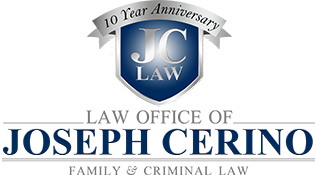In certain situations, private individuals have the power to make an arrest without a warrant. These types of arrests, known as citizens arrests, occur when ordinary people either detain criminals themselves or direct police officers to detain a criminal.
Citizens arrests are subject to fewer constitutional requirements than an arrest by law enforcement officers, but citizens arrests still have rules that govern them. Failure to abide by these rules can result in civil and criminal liability for the arresting individual.
Felonies
A person can arrest someone that they reasonably suspect of committing a felony, even if the felony didnt occur in the presence of the individual making the arrest. As long as a felony was actually committed and the individual making the arrest knew of the crime, a reasonable suspicion about the identity of the perpetrator will justify their arrest.
The felony must have actually occurred before an individual can make a citizens arrest. Even if a person reasonably believes that a felony has occurred, if the crime did not in fact happen, the person making the arrest could become civilly and criminally liable.
Breaches of the Peace
In general, people cant use citizens arrests for misdemeanors unless the misdemeanor involves a breach of the peace. Even in these circumstances, however, individuals can only make arrests when they have personally witnessed the criminal behavior and the breach has just occurred or there is a strong likelihood that the breach will continue.
Constitutionality of a Citizens Arrest
As mentioned above, a citizens arrest does not carry with it the same constitutional requirements that attach to an arrest by law enforcement officers. If, however, a person acts on the request of law enforcement, any arrest they carry out must meet the same constitutional standards as an arrest by the law enforcement officers themselves.
For example, a citizens arrest upon the request of law enforcement would still have to comply with the Fourth Amendments restrictions against unreasonable searches and seizures and its warrant requirement. A citizen could also face prosecution under statutes that make it a crime to deprive someone of their constitutional rights.
If a citizen acts on their own initiative in making the arrest, however, those same constitutional restrictions do not apply.
Reasonable Force
Despite the fact that citizens arrests do not carry the same constitutional requirements as a typical arrest, individuals must only use the amount of force that is reasonable and necessary to make the arrest. Just what exactly constitutes the reasonable and necessary amount of force depends on the facts surrounding each arrest. Juries will usually examine the facts surrounding a citizens arrest and make the determination of whether it involved excessive force.
The use of excessive force can open up the arresting individual to civil and criminal liability, and this is especially true when individuals use deadly force to apprehend criminals. States have different rules about the use of deadly force during a citizens arrest, and failure to comply with the law in this area can result in serious consequences.
Some states prohibit the use of deadly force except in circumstances where the person making the arrest or someone else is faced with the threat of serious bodily injury or immediate use of deadly physical force. In these situations, the person making the arrest may use deadly force in order to prevent harm to themselves or others.
Other states allow people making a citizens arrest to use deadly force to stop a fleeing arrestee as long as the person making the arrest used reasonable methods in order to make the arrest. Some states go further and require that the person using deadly force first attempt to restrain the subject of the arrest, and other states require pursuit and an explicitly stated intent to arrest before using deadly force.
Any use of deadly force during a citizens arrest that does not comply with the applicable state law could result in manslaughter or murder charges against the arresting individual, as well as a wrongful death lawsuit from the family of the suspected criminal.
Tort Liability
In addition to wrongful death lawsuits, a citizens arrest has the potential to expose individuals to other kinds of tort liability if the arrest was not justified. If a person does not comply with the laws requirements when making the arrest, the arrestee could allege a number of offenses in a personal injury lawsuit, including the aforementioned wrongful death, false imprisonment and assault and battery.
Every individual is empowered to arrest wrongdoers in certain circumstances, but individuals looking to make a citizens arrest act at their own risk. Not only is the act of apprehending a criminal inherently dangerous, but failure to meet the legal requirements for a citizens arrest could have devastating consequences for the person making the arrest.
Read the original article on FindLaw.
Learn about citizens arrest laws by state.
